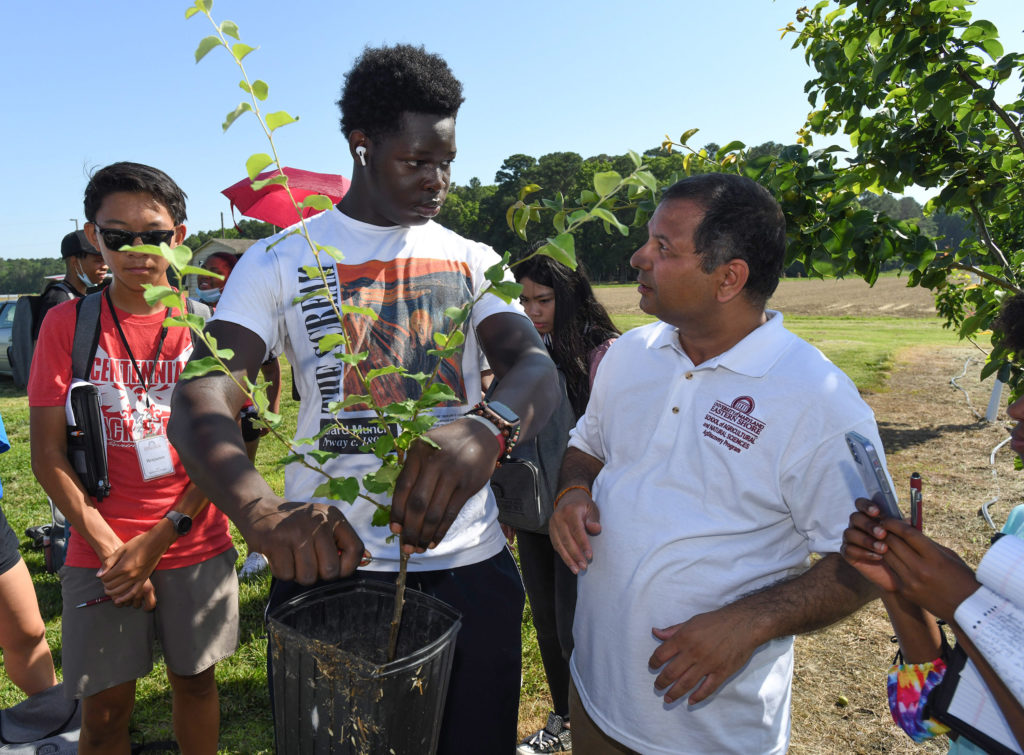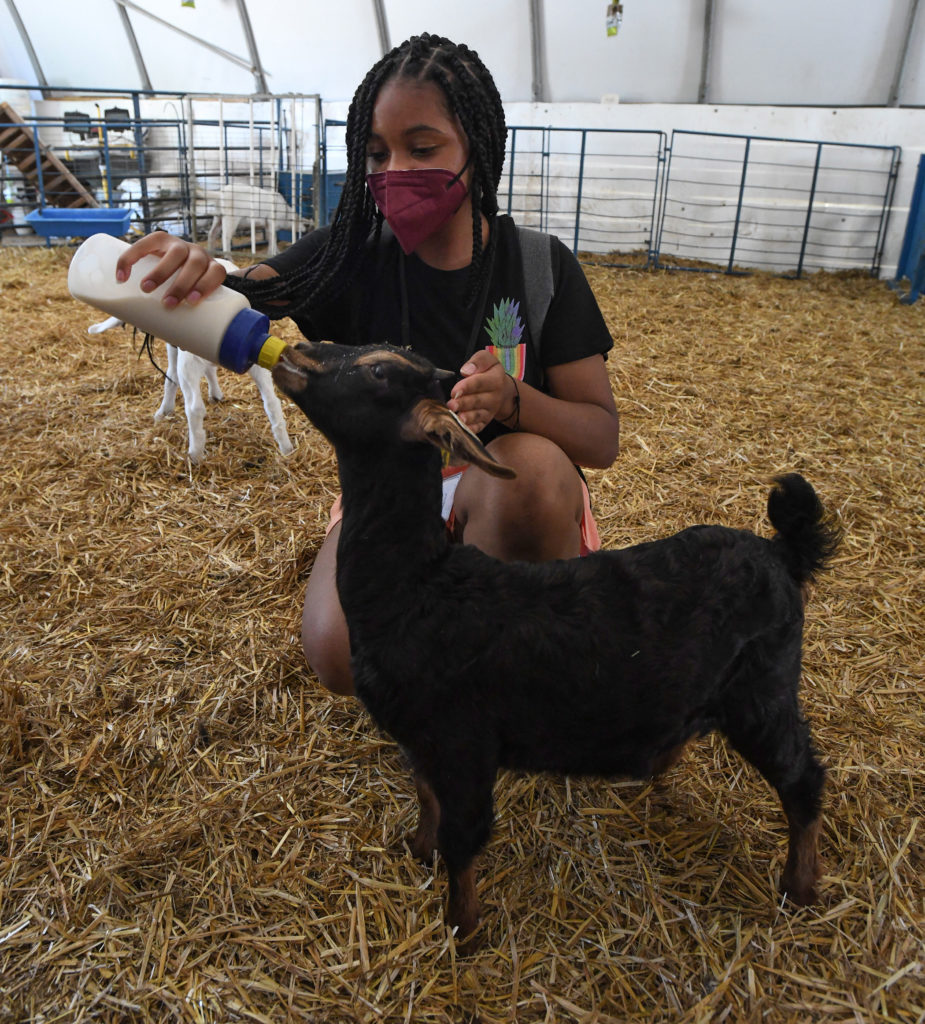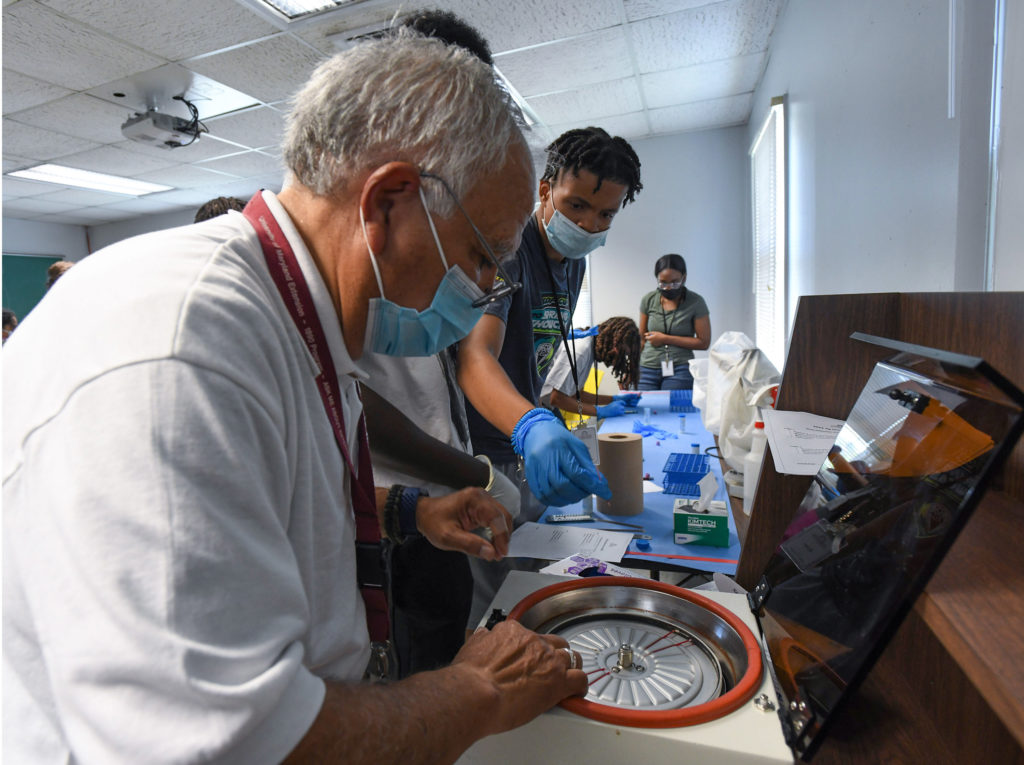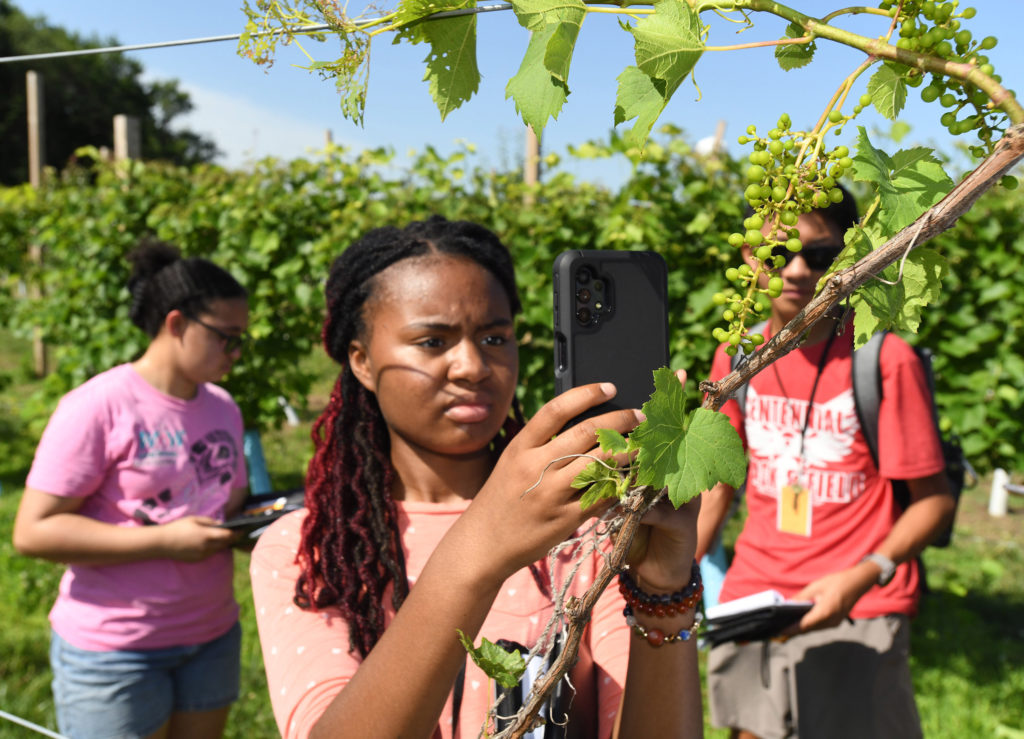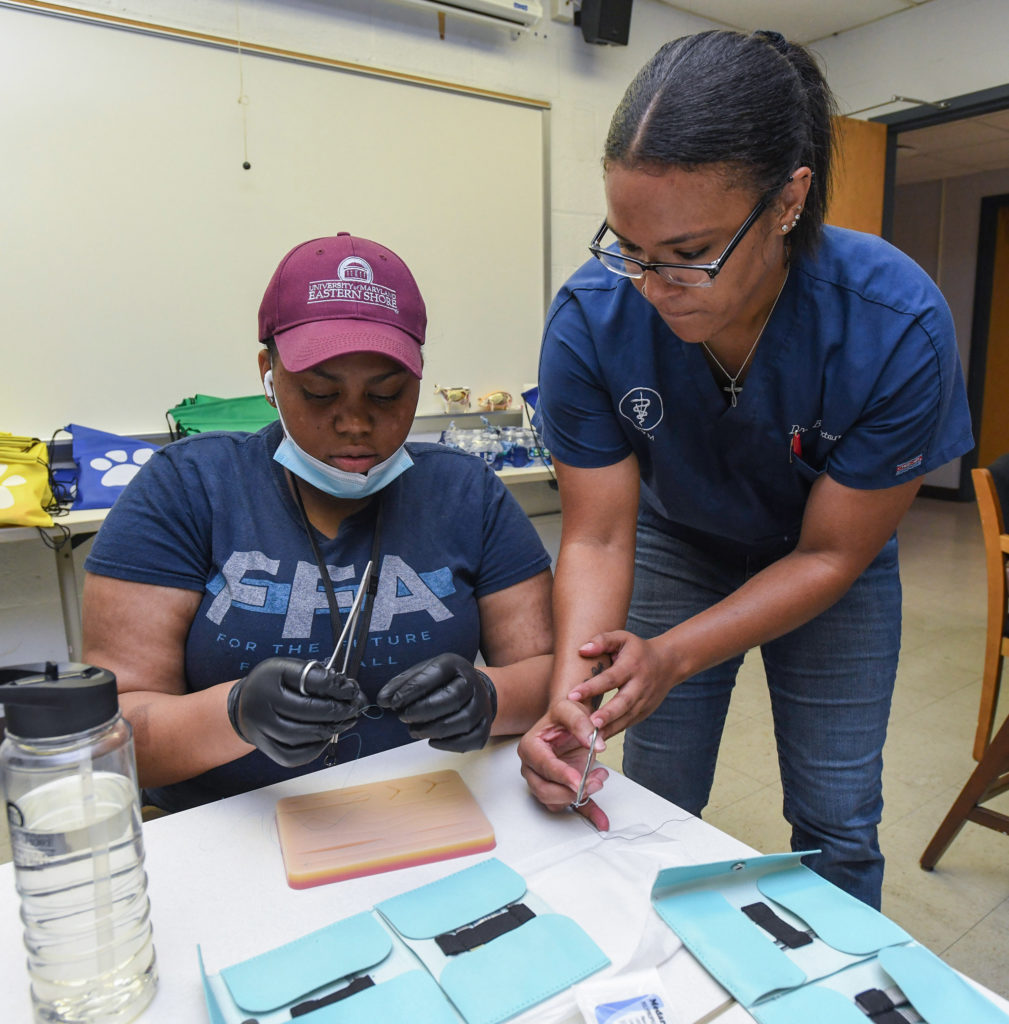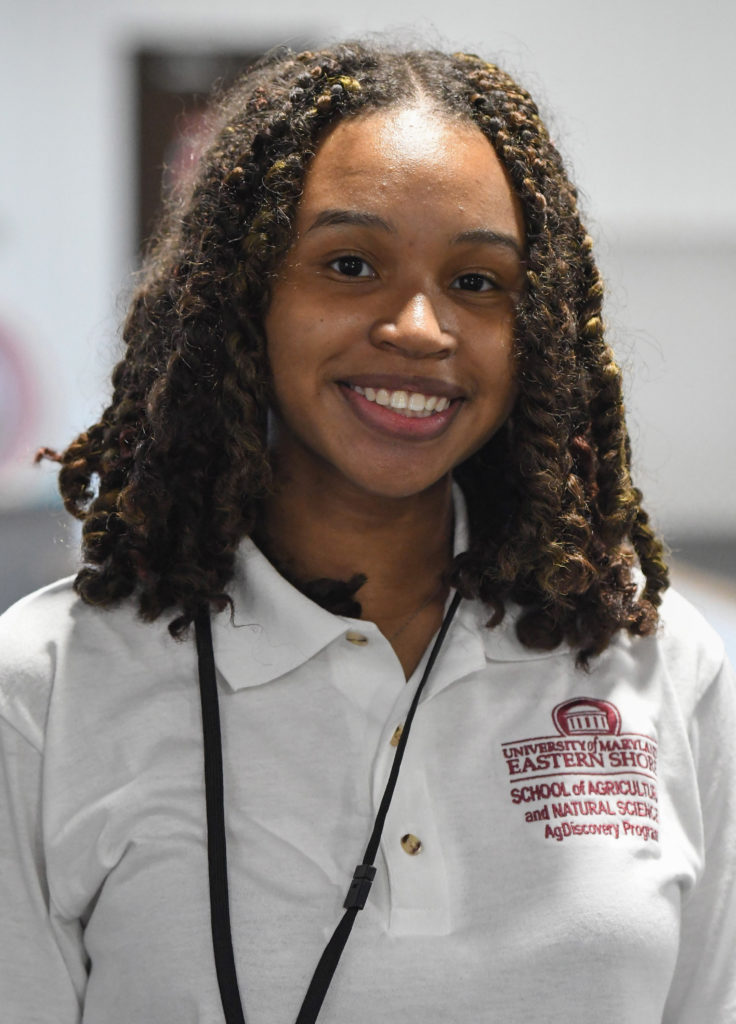
A group of 20 middle and high school students from Maryland and as far away as Puerto Rico spent two weeks of their summer at the AgDiscovery program at the University of Maryland Eastern Shore. Participants experienced firsthand some of the careers that they could pursue in agriculture and related fields and interacted with scientists conducting state-of-the-art research.
Sponsored by the U.S. Department of Agriculture Animal and Plant Inspection Service, AgDiscovery is a free opportunity for the future workforce to not only explore agricultural sciences, but to also experience learning and living on a college campus. UMES’ program is in its 10th year and has impacted over 170 youth.
Mona Jones of Rockville (at left) took in being in a rural environment on the Eastern Shore.
“At home, there isn’t as much farmland. Now that I’m getting used to it, it is actually more relaxing and I’m learning to enjoy being in a rural area. Since I want to work on a farm, this is good to see,” Jones said.
During a field trip to the Wye Research and Education facility in Queenstown, Maryland, the rising senior at Rockville High School met researchers in horticulture and plant science—things she is potentially interested in pursuing as an area of study and career. A visit to UMES’ on-campus orchard to learn about Asian vegetables and fruit was also high on her list.
“Agriculture is so much more than farming,” said Corrie Cotton, a research assistant professor in the Department of Agriculture, Food and Resource Sciences and the program director at UMES. “It touches every aspect of our lives.”
“Participants learn about the diverse field through a series of student-centered labs, workshops, research projects and field trips,” Cotton said. This year’s program included animal care and veterinary medicine, soil health and water analysis, poultry research, urban forestry, small ruminants, 4-H STEM, plant breeding, food safety, Geographic Information Systems and GPS, Asian vegetables, the UMES orchard and edible insects. The group also visited agricultural facilities in the state, such as the Horn Point Laboratory in Cambridge, the Wye Research and Education Center in Queenstown, and the Caroline County 4-H Center and an alpaca farm in Denton.
Gail Stephens, agricultural communications and media associate, School of Agricultural and Natural Sciences, University of Maryland Eastern Shore, 410-251-7009, gcstephens@umes.edu.
Photos by Todd Dudek, agricultural communications photographer/videographer, School of Agricultural and Natural Sciences, University of Maryland Eastern Shore, tdudek@umes.edu.

